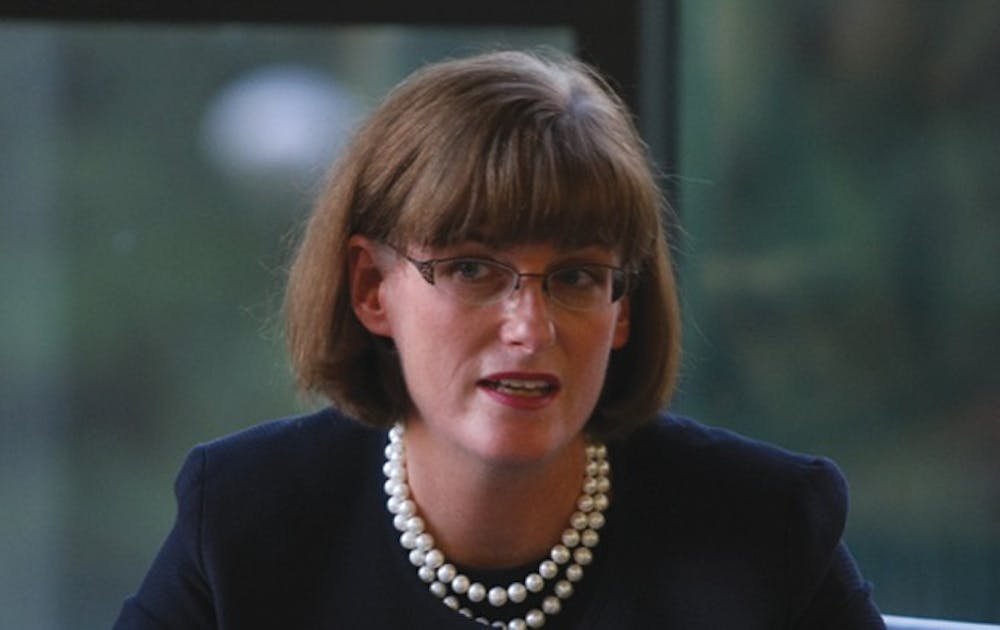Ellen Moran, former communications director for the Obama administration, addressed students and faculty on the significance of women in the upcoming presidential election Wednesday evening.
Moran, who also served previously as director of Emily’s List, a group that works to elect Democratic women, identified three central factors that make the election especially significant—the policy, campaign and information environments. The event was brought to campus through a collaboration among the Women’s Center, the Baldwin Scholars Program and the Women’s Studies Program.
“With all the women’s issues that were discussed so prominently—Sandra Fluke, invasive ultrasounds, insurance mandates for birth control—I think there were a lot of younger women who were surprised and got a wake-up call,” she said. “We’re in a time where social change is happening faster than policy change, and this generation is on the vanguard, pushing dialogue forward.”
In terms of policy, Moran underscored the attention that has been given to social issues as something that makes this election unique. She noted that although the economy is the most meaningful issue for nearly everyone, there has been much more discussion of cultural problems than anticipated—especially of women’s interests and gay rights.
“There’s been such a robust examination on all these issues that are typically considered secondary,” she said.
Moran noted that this presidential election is the first since district reapportionment after the 2010 census. The results of the census, which occurs every 10 years, are the basis for changes in the composition of the Electoral College—changes that affect the candidates’ campaign strategies. She added that the nation’s changing demography—more voters of color, young voters and single female voters—is also noteworthy.
People, she said, now have much more choice in the information they consume, which can be very influential in the beliefs they form.
“Social media has changed so much of how news is reported and how people form their opinions,” Moran added.
She also highlighted how pivotal this election is for women, especially the younger generations.
Women’s Center Director Ada Gregory noted that Moran was an ideal speaker in fortifying the series’ focus on women’s leadership in the political realm.
“She emphasized how historic a year this is for women, both in terms of the candidates running and all of the issues the electorate is recognizing,” said Samantha Lachman, a senior who writes a column for The Chronicle. “She really crystallized the moment.”
Moran also stressed how much gender inequality still exists.
“It’s still true that only 17 percent of people in Congress are women. It’s still true that there are barriers to a woman running for president, as we saw with Hillary Clinton,” she said. “Honestly, are there some parts of Washington that still feel like a boy’s club to some degree? A little bit.”
Despite these disheartening facts, Moran said she is optimistic, noting that both parties have made progress in recent years in including women. To move even further, though, the work of this generation of young women is key, she noted.
“Get involved, take a stand, no matter what party you support,” she said. “These elections truly matter.”
Get The Chronicle straight to your inbox
Signup for our weekly newsletter. Cancel at any time.

